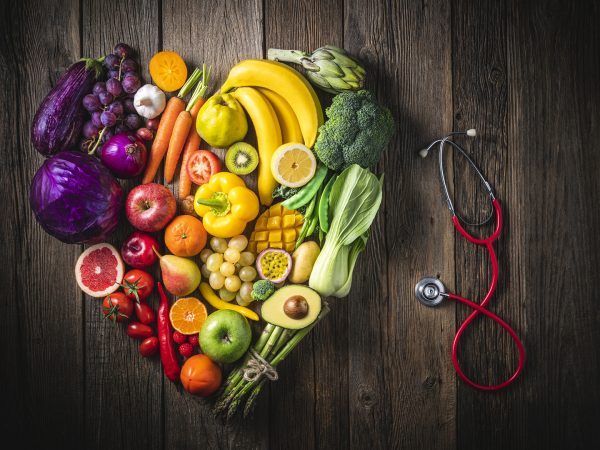Can Diet Benefit Blood Pressure?
I’ve been diagnosed with high blood pressure. What are the best foods to help lower it?
Andrew Weil, M.D. | July 22, 2021

Also known as hypertension, high blood pressure occurs when the blood flowing through your blood vessels puts excessive pressure or force on the vessels’ walls. You’re considered to have high blood pressure if your readings are consistently higher than 130/80 mm Hg. High blood pressure often doesn’t cause any symptoms, but if left untreated, it is a major risk factor for cardiovascular disease, heart attack, stroke, and kidney failure.
Lifestyle measures, such as making dietary changes, getting regular physical activity, managing stress, and quitting smoking, are typically the first line of treatment. Conventional doctors may recommend medications to treat blood pressure that remains chronically high despite attempts to lower it through lifestyle changes. But even people who take anti-hypertensive drugs can benefit from following a healthy diet.
Indeed, research has found that certain foods may have anti-hypertensive properties. In general, I recommend eating more fruits and vegetables. Produce is high in potassium, which can help counteract the effects of sodium; too much dietary sodium is known to raise blood pressure.
In addition, leafy green vegetables — including spinach, kale, chard, and collard greens — are rich in nitrates, compounds that help dilate blood vessels. Research suggests that people who consume one to two servings of leafy greens a day, experience reductions in blood pressure, at least in the short term.
Nitrates are also present in beets, which likely explains why one study found that people with hypertension who drank about a cup of beet juice a day saw their blood pressure drop by an average of 8/4 mmHg — in many cases, bringing their blood pressure readings within the normal range. Other foods that may help include garlic, bananas, and oats.
Just as there are foods you should increase in your diet, there are foods to cut back on or eliminate altogether. These include processed foods, foods and beverages that are high in caffeine, and alcohol, all of which have been linked to high blood pressure. Processed foods also tend to be high in sodium. Many experts recommend limiting your sodium intake to 1,500 mg a day or less.
You can find a compilation of these recommendations in the Dietary Approaches to Stop Hypertension (DASH) diet, which was developed by the National Heart, Lung, and Blood Institute based on a large-scale study that identified the foods that affect blood pressure. The DASH diet emphasizes generous amounts of fruits and vegetables and low-fat or fat-free dairy products that provide adequate calcium. The diet is also relatively low in fat and sodium. Research has shown that the DASH diet can lower blood pressure in as little as two weeks. It may also help reduce levels of LDL (“bad”) cholesterol — another risk factor for cardiovascular disease.
Andrew Weil, M.D.
Source:
Harvard Health Publishing, “Beating high blood pressure with food,” August 23, 2019. health.harvard/newsletter_article/beating-high-blood-pressure-with-food












